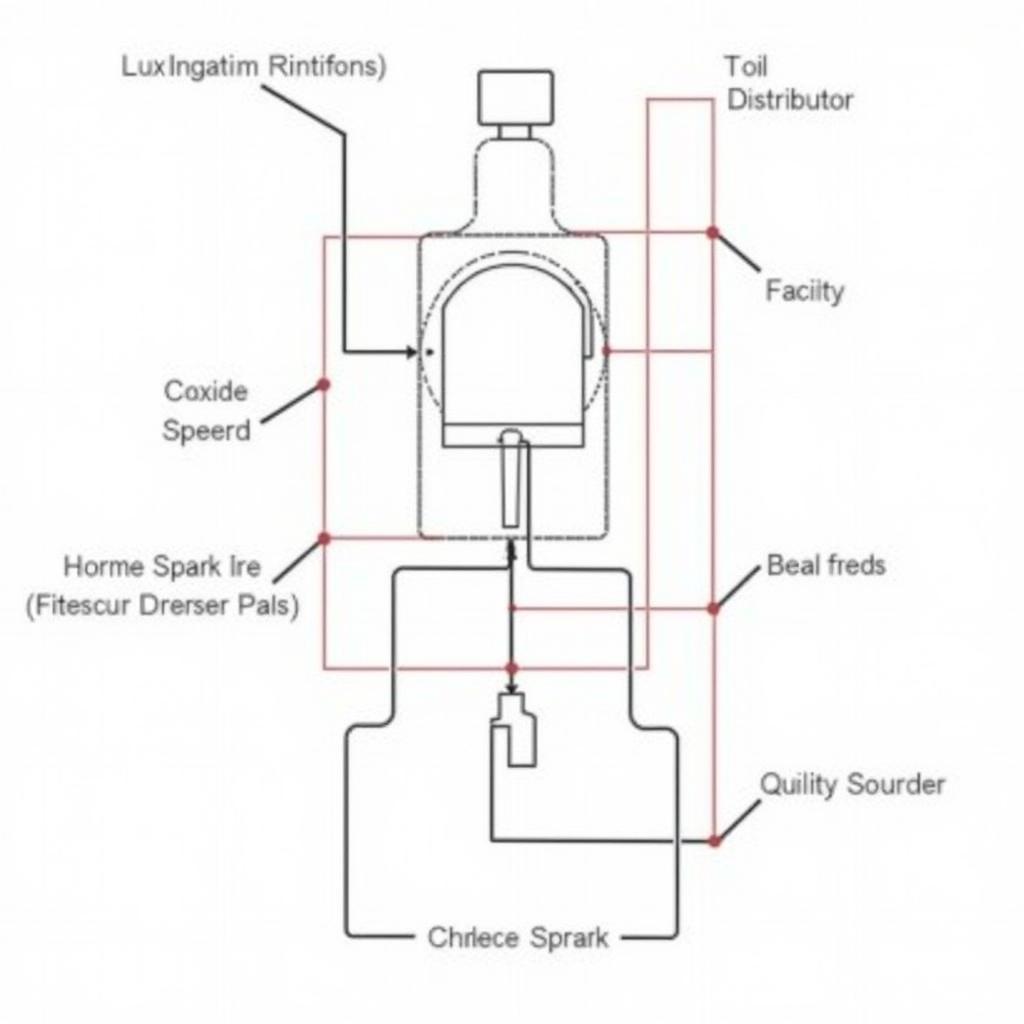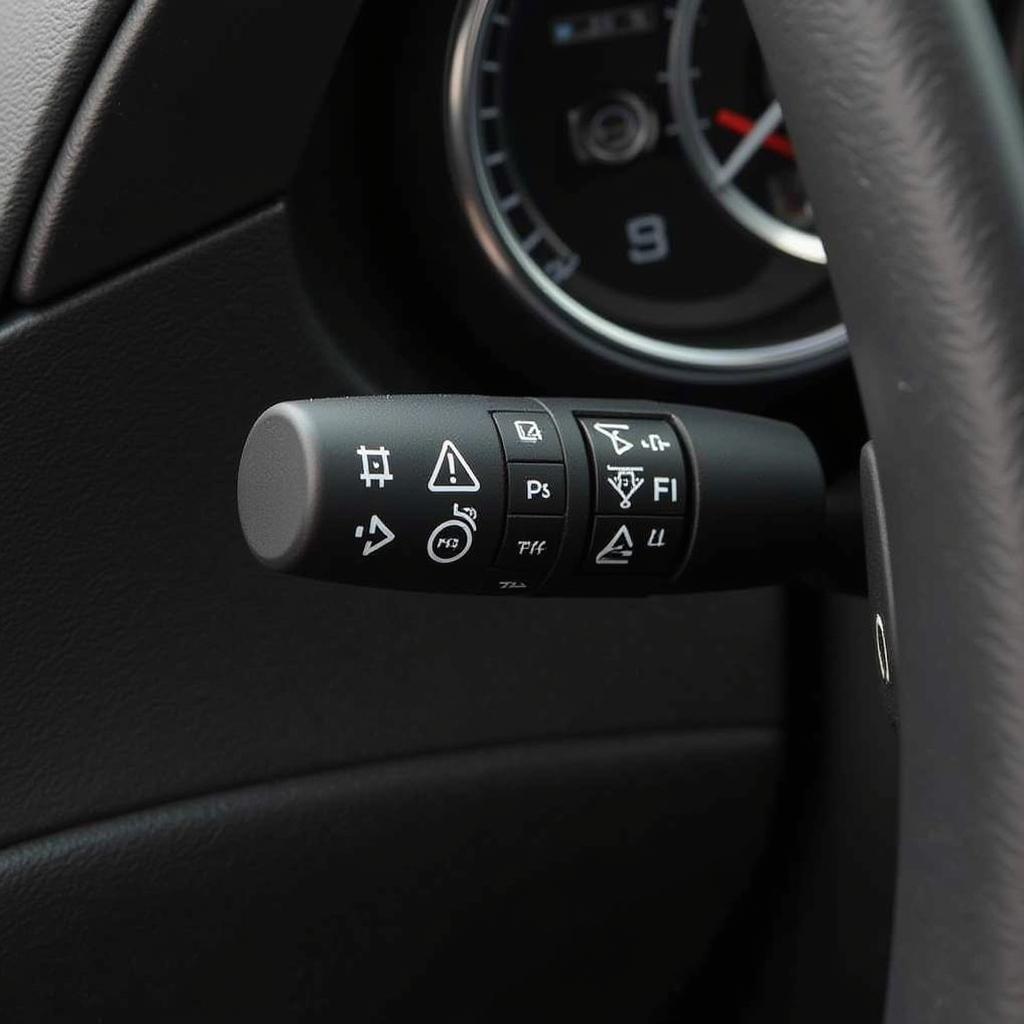Your car won’t start, and you’ve already checked the battery. It’s a frustrating situation, especially when you’re in a hurry. But don’t worry, you’re not alone. This issue is more common than you think, and it doesn’t always mean a costly trip to the mechanic. This article will guide you through the most likely culprits when your car won’t start but the battery is fine, offering potential solutions and expert insights to get you back on the road.
Beyond the Battery: Common Car Starting Problems
When your car refuses to cooperate, it can be baffling to pinpoint the problem. A dead battery is often the first suspect, but if you’ve ruled that out, the issue could lie elsewhere. Let’s explore some of the most common reasons your car won’t start, even with a healthy battery.
Ignition System Issues: The Spark of Life
A faulty ignition system is a frequent cause of starting problems. The ignition system is responsible for generating the spark that ignites the fuel in your engine. Several components within this system could be the culprit. The ignition switch, the ignition coil, the distributor (in older cars), or even worn-out spark plugs can prevent your car from starting.
 Car Ignition System Components
Car Ignition System Components
Fuel System Failures: No Gas, No Go
Even with a strong spark, your car won’t start if it’s not getting fuel. A malfunctioning fuel pump, a clogged fuel filter, or even a faulty fuel injector can disrupt the flow of gasoline to the engine. You might hear a whining noise from the fuel pump if it’s struggling, or you might smell gasoline if there’s a leak.
Starter Motor Troubles: The Engine Cranker
The starter motor is the muscle that cranks your engine to life. If the starter motor is failing, you might hear a clicking sound when you turn the key, or the engine might not crank at all. A bad solenoid, a worn-out starter motor, or even corroded connections can prevent the starter from functioning properly.
Security System Malfunctions: Locking You Out
Modern cars have sophisticated security systems designed to prevent theft. Sometimes, these systems can malfunction and prevent the car from starting, even if you have the correct key. This can be caused by a faulty immobilizer system, a dead key fob battery, or even a problem with the car’s computer.
Diagnosing the Problem: A Step-by-Step Guide
Determining the exact cause requires some investigative work. Here’s a step-by-step guide to help you diagnose the issue:
-
Listen Carefully: When you turn the key, pay close attention to any sounds. A clicking sound usually indicates a starter problem. No sound at all might point to the ignition switch or a security system issue.
-
Check the Dashboard Lights: See if any warning lights illuminate when you turn the key. The check engine light, for example, could indicate a fuel system problem.
-
Inspect the Fuel Gauge: Make sure you have enough gas. It sounds obvious, but sometimes the simplest solutions are overlooked.
-
Try Jump Starting: Even if your battery seems fine, a weak battery can sometimes prevent the car from starting. If jump starting works, it’s a clear sign you need a new battery.
-
Check for Security System Issues: If your key fob is malfunctioning, try using the spare key. If the car starts, the problem lies with the original key fob.
Expert Insights: Advice from the Pros
“A common mistake people make is assuming the battery is the problem simply because the car won’t start,” says Alex Johnson, a certified automotive technician with over 20 years of experience. “Taking the time to listen for unusual sounds and check the dashboard lights can save you time and money in the long run.”
Another expert, Sarah Miller, an electrical engineer specializing in automotive systems, adds, “Modern cars rely heavily on complex electronic systems. A small glitch in the car’s computer can sometimes cause starting problems that are difficult to diagnose without specialized equipment.”
Conclusion: Getting Back on the Road
When your car won’t start but it’s not the battery, the problem can range from a simple fix to a more complex issue. By understanding the various systems involved and following the diagnostic steps outlined above, you can narrow down the possibilities and take the right steps to get your car running smoothly again. Remember, when in doubt, consult a qualified mechanic.
FAQ: Frequently Asked Questions
-
What if I hear a clicking sound when I try to start my car? This usually indicates a problem with the starter motor or the battery cables.
-
Could a bad alternator prevent my car from starting? While a bad alternator won’t directly prevent the car from starting, it can drain the battery, eventually leading to starting problems.
-
What should I do if my car won’t start and there’s a smell of gasoline? This could indicate a fuel leak, which can be dangerous. Do not attempt to start the car and contact a mechanic immediately.
-
How can I tell if my ignition switch is bad? A faulty ignition switch can cause various problems, including difficulty turning the key, flickering dashboard lights, or a complete loss of power to the car’s electrical system.
-
Can extreme temperatures affect my car’s ability to start? Yes, extreme heat or cold can affect the battery, fuel system, and other components, making it harder to start the car.
-
Is it safe to jump start a car with a modern electronic system? Yes, but it’s important to follow the correct procedure to avoid damaging the car’s electronics.
-
How often should I replace my car’s spark plugs? This depends on the make and model of your car, but generally, spark plugs should be replaced every 30,000 to 100,000 miles.


